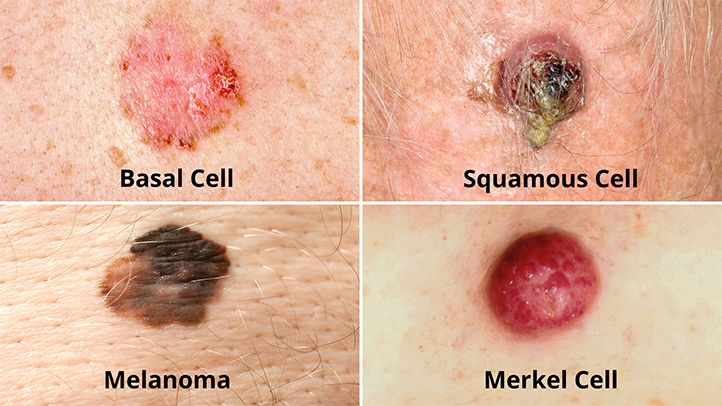I wrote this post a few months back, but it seems particularly appropriate to post today given the unexpected and sad death of Jimmy Buffet. Merkel Cell Carcinoma is a rare tumor. I specialize in Cosmetic Plastic Surgery, so I have only seen a handful of these throughout my career. It is a rare and aggressive tumor that needs early diagnosis for the best prognosis.

Jimmy Buffet performs for members of Joint Task Force Haiti behind the U.S. Embassy in Port-au-Prince, Haiti, March 3, 2010. (U.S. Navy photo by Senior Chief Mass Communication Specialist Spike Call/Released)
One of my favorite recording artists, Jimmy Buffett, recently passed away after a four year battle with Merkel Cell Carcinoma. Jimmy Buffet’s success and longevity make him a one-in-a-million artist, slightly more common than the risk of dying from Merkel Cell Carcinoma. What is this rare tumor and how can we protect ourselves from it? That is the topic of today’s San Francisco Plastic Surgery Blog.
What is Merkel Cell Carcinoma?

Skin cancers look different, but there is some overlap. Here are typical presentations of the four most common skin cancers.
Merkel Cell Carcinoma is a neuroendocrine carcinoma of the skin. It is rare and tends to grow rapidly and spreads quickly to other parts of the body. Merkel Cells (responsible for Merkel Cell Carcinoma) and melanocytes (responsible for Melanoma) both arise embryologically from nerve cells, making them harder for the body to combat after they become cancerous.
How Does Merkel Cell Carcinoma Start?
Merkel Cells live deep in the outer layer of your skin (epidermis). They are connected to the nerve endings responsible for the sense of touch.
Researchers recently discovered that a common virus (Merkel cell polyomavirus) may play a role in causing Merkel Cell Carcinoma. Normally, the virus (Merkel cell polyomavirus) lives on the skin. The virus is very common. It doesn’t normally cause any signs or symptoms and only rarely leads to carcinoma. Other undetermined factors are involved.
Merkel Cell Carcinoma Risk Factors
There are several factors associated with an increased risk of Merkel Cell Carcinoma. According to the Mayo Clinic’s Website, the five most common risk factors are:
- UV Exposure: Excessive exposure to natural or artificial sunlight, increases the risk of Merkel Cell Carcinoma. The majority of Merkel Cell Carcinomas arise on the skin frequently exposed to sun.
- Immunocompromise: People with weakened immune systems — including those with HIV infection, those taking drugs that suppress the immune response or those with chronic leukemias — are more likely to develop Merkel Cell Carcinoma.
- Other Skin Cancers: Merkel Cell Carcinoma is associated with the development of other skin cancers, such as basal cell or squamous cell carcinoma.
- Advanced Age: The risk of Merkel Cell Carcinoma increases with age. Although it can occur at any age, it is most common in people older than age 50.
- Lighter Skin Color: Merkel Cell Carcinoma usually arises in people who have light-colored skin. Whites are much more likely to be affected by this skin cancer than are blacks.
What is the Natural History of Merkel Cell Carcinoma?
Merkel Cell Carcinoma usually appears as a flesh-colored or bluish-red nodule, in sun-exposed areas like the head and neck, though it can occur anywhere in the skin. It presents as a fast-growing, painless nodule.
It first spreads to nearby lymph nodes, and later it can interfere with the functioning of these organs like the brain, bones, liver or lungs. Early detection is key because cancer that has spread (metastasized) is more difficult to treat and can be fatal.
How to Prevent Merkel Cell Carcinoma

Sun protection: Hats, sunglasses, sun protective clothing and sunscreen can all decrease your risk of skin cancer.
While exposure to sunlight isn’t proved to cause Merkel Cell Carcinoma, it is considered a risk factor for this cancer. All the recommendations for reducing the risk of all skin cancers center around reducing sun exposure.
- Avoid sun exposure during the peak hours of 10 AM to 4 PM.
- Apply sunscreen liberally.
- Wear sun protective clothing, hats and sunglasses.
- Monitor moles, freckles and skin bumps, especially if they are changing.
What if I Have a Changing Mole?
Most skin cancers are slow growing and easily treated; however, rare tumors like Merkel Cell Carcinoma and Melanoma require early detection to ensure survival. The overall 5-year survival rate is 65%. This means 65% of people diagnosed with Merkel Cell Carcinoma are alive five years after diagnosis.
Five year survival rates for Merkel Cell Carcinoma ranges depending on when the tumor is diagnosed. The sooner the better.
- Localized 75%: There is no sign that the cancer has spread outside of the skin where it started.
- Regional 61%: The cancer has spread outside the skin where it started to nearby structures or lymph nodes.
- Distant 24%: The cancer has spread to distant parts of the body, such as the lungs, liver, or distant parts of the skin.
The above are historical numbers, and actual survival today may be better due to advancements in treatment. Regardless, if you notice a mole, freckle or bump that is changing in size, shape or color, growing rapidly, or bleeding easily after minor trauma, such as washing your skin or shaving, make an appointment with your doctor. The sooner you are treated, the better the prognosis.
Previous Post Next Post